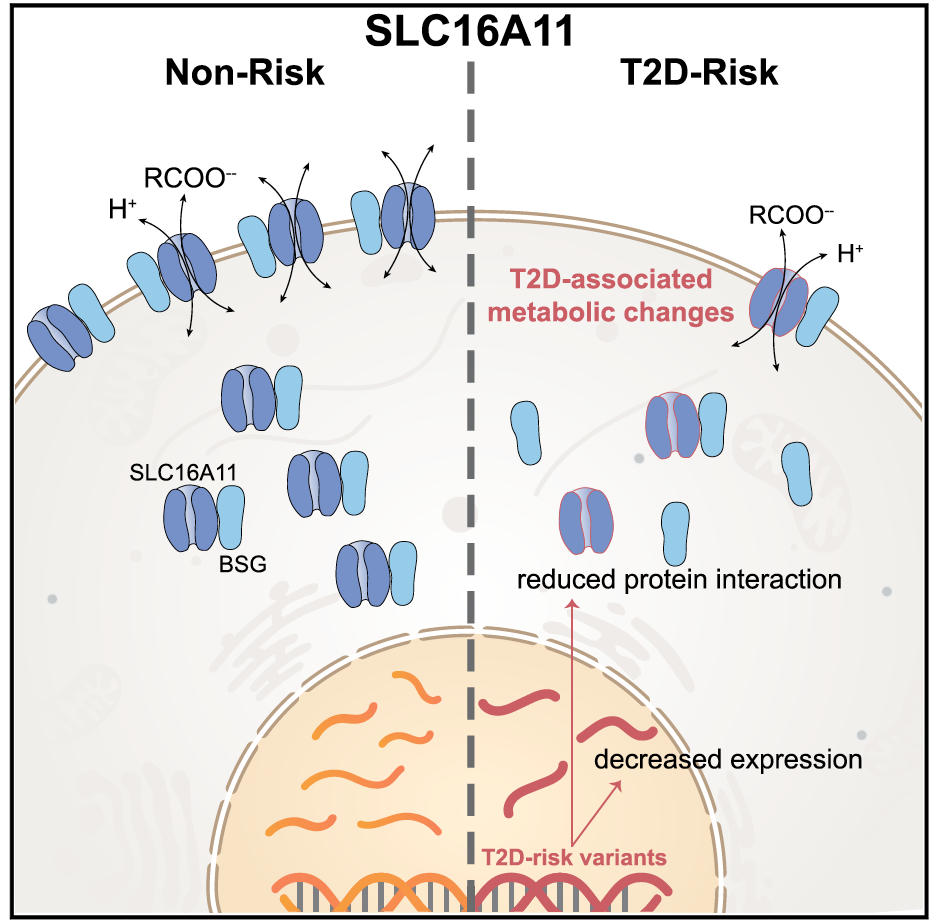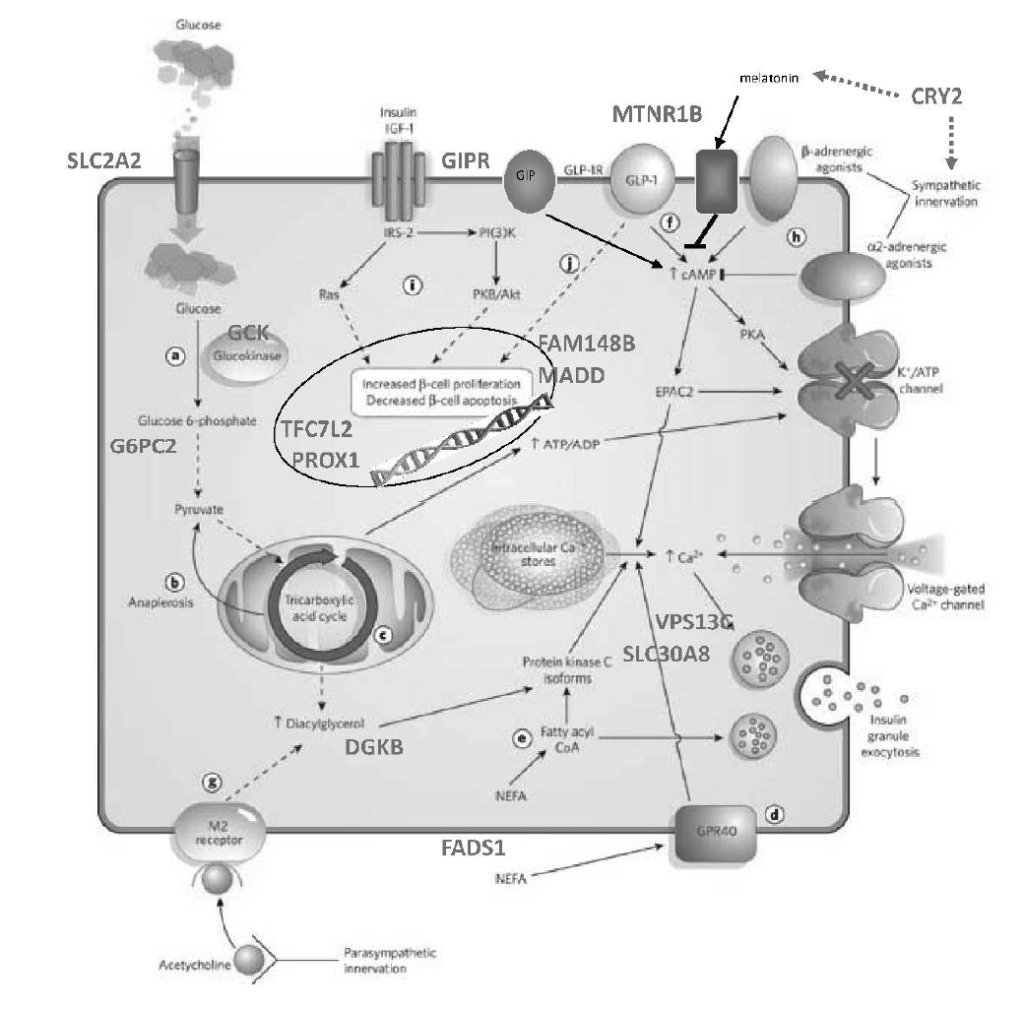Sean Burns and colleagues developed a high-throughput insulin secretion assay that can measure real-time insulin secretion in beta cells [Burns Cell Metabolism paper]. This system can be used for functional characterization of associated genetic loci (e.g. mutated via CRISPR/Cas9 approaches) and screening of small molecules for an impact on insulin secretion. …
IGF2
A variant that disrupts an intron-exon splice junction in IGF2 protects from T2D in Mexican populations [Mercader Diabetes paper]. …
SLC16A11

The T2D-associated gene SLC16A11 increases risk of T2D by ~30% in Latino populations. It encodes a monocarboxylate transporter. Members of the Florez group have characterized its transport function, verified that non-coding variants in the T2D risk haplotype reduce expression of SLC16A11 in hepatocytes, coding variants in the same haplotype impair its interaction with the chaperone …
Functional Characterization

Confirming robust genomic associations is only the beginning. These signals serve to plant a flag in a given genomic region, where a haplotype (a linear arrangement of correlated genetic variants) is more often present in disease than in health. However, the physical proximity of the index variant to a protein-coding gene does not imply that …
Type 2 diabetes variants disrupt function of SLC16A11 through two distinct mechanisms

Type 2 diabetes (T2D) affects Latinos at twice the rate seen in populations of European descent. We recently identified a risk haplotype spanning SLC16A11 that explains ?20% of the increased T2D prevalence in Mexico. Here, through genetic fine-mapping, we define a set of tightly linked variants likely to contain the causal allele(s). We show that …
Impact of type 2 diabetes susceptibility variants on quantitative glycemic traits reveals mechanistic heterogeneity

Patients with established type 2 diabetes display both ?-cell dysfunction and insulin resistance. To define fundamental processes leading to the diabetic state, we examined the relationship between type 2 diabetes risk variants at 37 established susceptibility loci, and indices of proinsulin processing, insulin secretion, and insulin sensitivity. We included data from up to 58,614 nondiabetic …
The influence of rare genetic variation in SLC30A8 on diabetes incidence and beta-cell function
CONTEXT/OBJECTIVE: The variant rs13266634 in SLC30A8, encoding a ?-cell-specific zinc transporter, is associated with type 2 diabetes. We aimed to identify other variants in SLC30A8 that increase diabetes risk and impair ?-cell function, and test whether zinc intake modifies this risk. DESIGN/OUTCOME: We sequenced exons in SLC30A8 in 380 Diabetes Prevention Program (DPP) participants and …
Detailed physiologic characterization reveals diverse mechanisms for novel genetic loci regulating glucose and insulin metabolism in humans

OBJECTIVE: Recent genome-wide association studies have revealed loci associated with glucose and insulin-related traits. We aimed to characterize 19 such loci using detailed measures of insulin processing, secretion, and sensitivity to help elucidate their role in regulation of glucose control, insulin secretion and/or action. RESEARCH DESIGN AND METHODS: We investigated associations of loci identified by …


